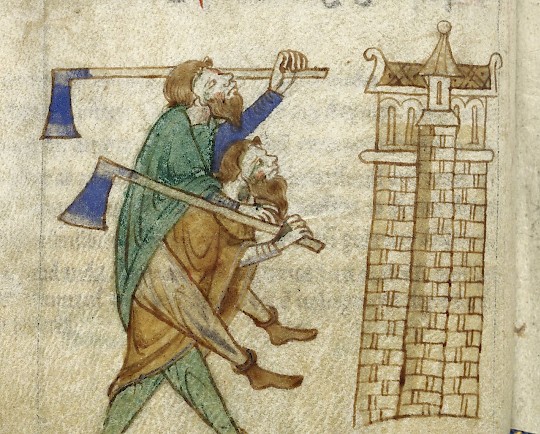Gerald of Wales on Military Strategy
While historians often ignore ideas about military strategy in the Middle Ages, one scholar is pointing out that if you look in the right places you can find medieval examples of how one should fight a war and conquer enemies.

‘Against Anachronism: Reframing the Conversation on Medieval Military Strategy,’ was the topic of a paper given by John Hosler earlier this year at the International Congress on Medieval Studies. He examined 12th-century writers who made proposals about how to plan campaigns and the best ways of defeating an enemy. One of his examples was Gerald of Wales, who wrote several works including Expugnatio Hibernica, an account of the Norman invasion of Ireland.
Gerald offered campaign strategies for conquering Wales and Ireland, and presented these ideas to English monarchs in some of the books he wrote. His plan for both was a strategy of attrition - to starve and exhaust the Welsh and Irish by taking away their supplies and stripping away their wealth. A system of castles would needed to be built protect English gains. Once they were weakened, Gerald advised his readers that they would be prone to a direct attack, preferably in winter. The major difference in between his plans was that he advocated a naval blockade of Wales, but felt that it was not necessary for Ireland, believing the natives of that island were too lazy to trade. He also suggested that any attack on Ireland begin by capturing the port of Limerick and using it as a base of operations.
Hosler, an Associate Professor at Morgan State University, explains that Gerald’s plans were “a sober analysis grounded in history and practicality.” His ideas were not just taken up in his own time, but were even used a hundred years later when Edward I launched his own campaigns against Wales.
Gerald’s ideas, according to Hosler, are more evidence that medieval writers had their own original concepts when thinking about military strategy, and that commanders were not just relying on works by ancient authors, such as Vegetius’ De Re Militari, when it came to planning warfare.
You can follow John Hosler on Twitter at @medievalist1. You can learn more about Gerald of Wales and the Norman Invasion of Ireland in the latest issue of Medieval Warfare magazine.

